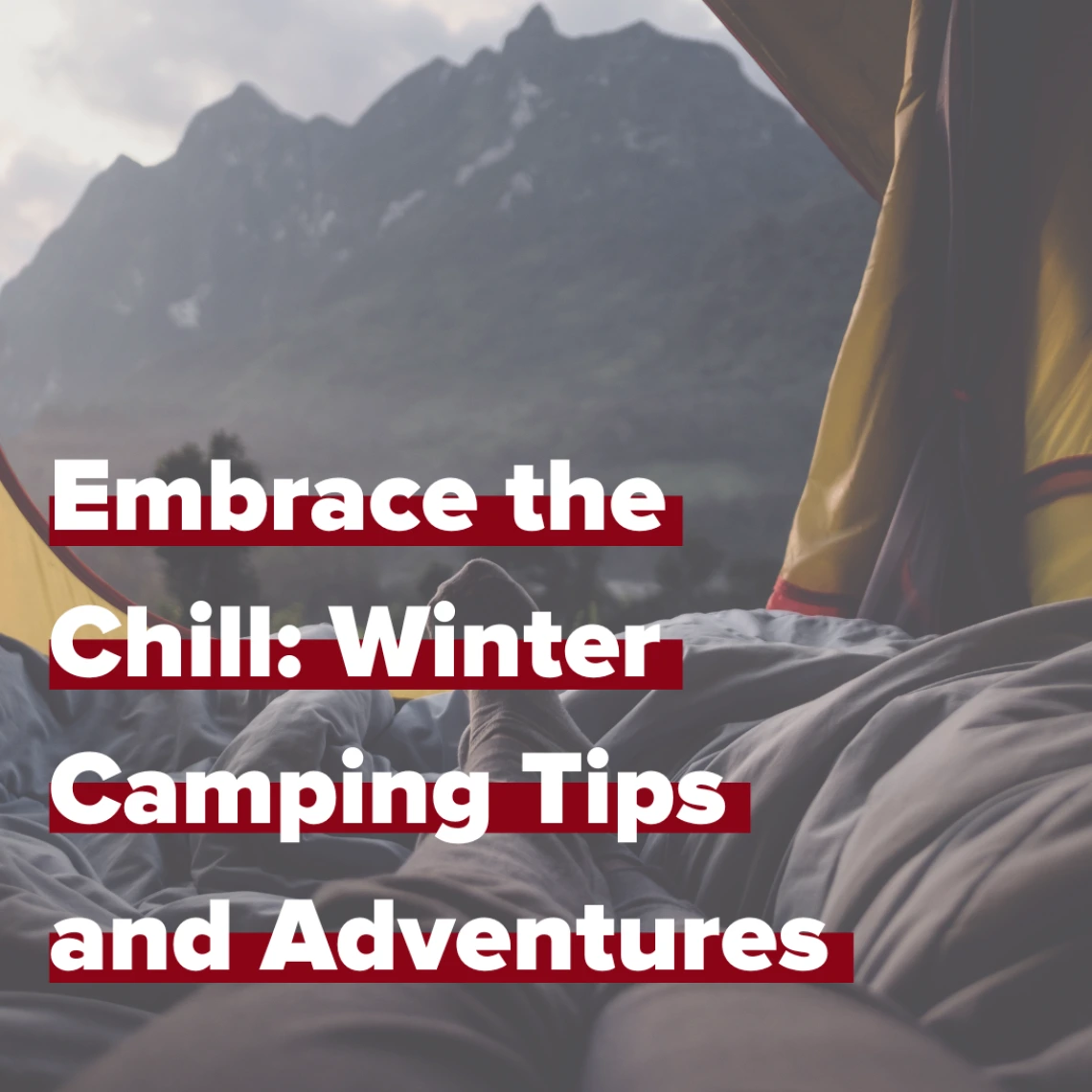Embrace the Chill: Winter Camping Tips and Adventures

Winter camping may not be everyone's cup of tea, but for those who dare to embrace the chill, it offers a unique and rewarding outdoor experience. In this blog post, we'll explore the world of winter camping, providing essential tips, gear recommendations and exciting adventures waiting for you in the snow-covered wilderness.
Choosing the Right Location:
When it comes to winter camping, location matters. Selecting the right destination can make or break your experience. Consider factors like accessibility, terrain and safety.
Essential Winter Camping Gear:
To brave the cold, you'll need the right gear. Here's a comprehensive list of equipment necessary for a comfortable and safe winter camping experience:
- Cold weather sleeping bags that are rated for sub-zero temperatures.
- Insulated clothing, including base layers, mid-layers and a waterproof outer shell.
- Warm winter boots that are suitable for snowy conditions.
- Snowshoes or crampons for navigating icy terrain.
- A four-season tent designed to withstand harsh winter conditions.
- A sturdy, insulated sleeping pad for added warmth.
- A reliable camp stove for cooking in cold weather.
- Quality winter sleeping bag liner for added warmth.
Setting Up Camp:
Once you've arrived at your chosen winter camping location, it's time to set up camp. Follow these steps:
- Choose a campsite with shelter from the wind and proximity to water sources.
- Set up your winter tent securely, ensuring it's properly anchored.
- Create a snow wall or snow berm around your tent for additional insulation.
- Insulate your sleeping area by using foam pads or inflatable mattresses.
- Ventilate your tent to prevent condensation inside, which can lead to moisture and cold
Staying Warm and Safe:
Staying warm is essential during cold winter nights. Here are some tips:
- Use hot water bottles in your sleeping bag.
- Layer your clothing to trap heat close to your body.
- Avoid sweating, as damp clothing loses its insulation properties.
- Keep a well-ventilated cooking area to prevent carbon monoxide buildup.
- Be vigilant about frostbite and hypothermia symptoms and know how to treat them.
Winter Cooking and Nutrition:
Winter camping requires hearty and warming meals. Consider these meal ideas:
- Hearty soups and stews cooked on your camp stove.
- Warm oatmeal or cereal for breakfast.
- Hot beverages like cocoa, tea or coffee to stay warm.
- High-calorie snacks to maintain energy levels.
Winter Wilderness Activities:
Winter camping offers unique outdoor activities depending on where you are located. Here are a few:
- Snowshoeing and skiing through pristine snowscapes.
- Ice fishing on frozen lakes or streams.
- Winter wildlife observation, with animals leaving tracks in the snow.
- Nighttime stargazing in the clear, crisp winter air.
Leave No Trace Principles:
Responsible camping is crucial:
- Pack out all trash and waste, leaving no trace of your visit.
- Use established campsites to minimize environmental impact.
Planning Your Winter Camping Trip:
To plan a winter camping trip, follow these steps:
- Choose suitable dates for your adventure.
- Obtain any necessary permits and check regulations.
- Coordinate logistics, transportation and emergency contacts.
- Be prepared for changing weather conditions and have a backup plan.
When students stay overnight in the winter months at Camp Cooper, they get to utilize our onsite cabins, which help protect them from the cold. Although they are better equipped in the cabins, we still ask that students bring sleeping backs, blankets, pillows and other warm gear to make their stay comfortable and cozy. We also have gear on site in case a student is not able to obtain the necessary equipment for an overnight stay in the cold.
Embrace the winter wonderland and try camping in the winter for yourself. By following these tips and recommendations, you can embark on a winter camping adventure that will not only test your skills but, will also reward you with unforgettable memories and a deeper connection to the natural world. So, pack your winter gear, grab your sense of adventure and head out into the serene beauty of the winter wilderness. It's a journey you won't soon forget.

